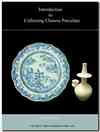Shipwreck Ceramics
Shipwreck Ceramics and The Ancient China Trade
Marine
archaeology has resulted in a new, deeper knowledge of both, ancient
trade routes and the ceramics and other wares traded by sea.
Much of
this trade occurred considerably earlier than originally supposed, it
is now known that China exported products by sea as early as the Tang
dynasty (618-907), over 500 years earlier than the arrival of the first
explorers from Europe in the area.
Evidence from shipwrecks and
their cargo discovered in the South China sea suggest that Annam
(present northern Vietnam) and ancient Thai kilns had also an important
role in the ceramics trade to and among South East Asia's ancient
kingdoms.
|
Shipwreck archaeology has contributed a lot to our current
knowledge of pre-Ming sea routes and marine archaeology has uncovered
facts about early trade with South and Southeast Asia unknown before. |
|
But, it is known that as early as
the Tang dynasty Chinese ships laden with merchandise sailed for
Southeast Asia, long before European ships were capable to reach the
region.
Much of this relatively new knowledge has its source not in
documents preserved in China or other places, but is the result of
marine archaeology, documenting and retrieving shipwrecks and their
cargo from their centuries old resting place on the bottom of the sea.
Long before the great expeditions of Zheng He in the Ming dynasty, China already had trading relations with the big Kingdoms in Southeast Asia.
When Malacca became dominant, the port of Malacca also grew into an
international trading hub where goods from China were transshipped to
the Middle East and Europe, and from where South Asian wares were
shipped to Southeast Asia and China.
A number of ships did sink during their shipping voyages due to various reasons in centuries past. These shipwrecks
now provide information that otherwise would have been lost. In the
vicinity of the Malay peninsula alone about ten ship wrecks have up to
date been successfully investigated or excavated, contributing a great
deal of new information and facts regarding early ceramics trade in the
region, which were unknown before.
Go from Shipwreck Ceramics to Ancient China Trade
Ancient Shipwrecks

